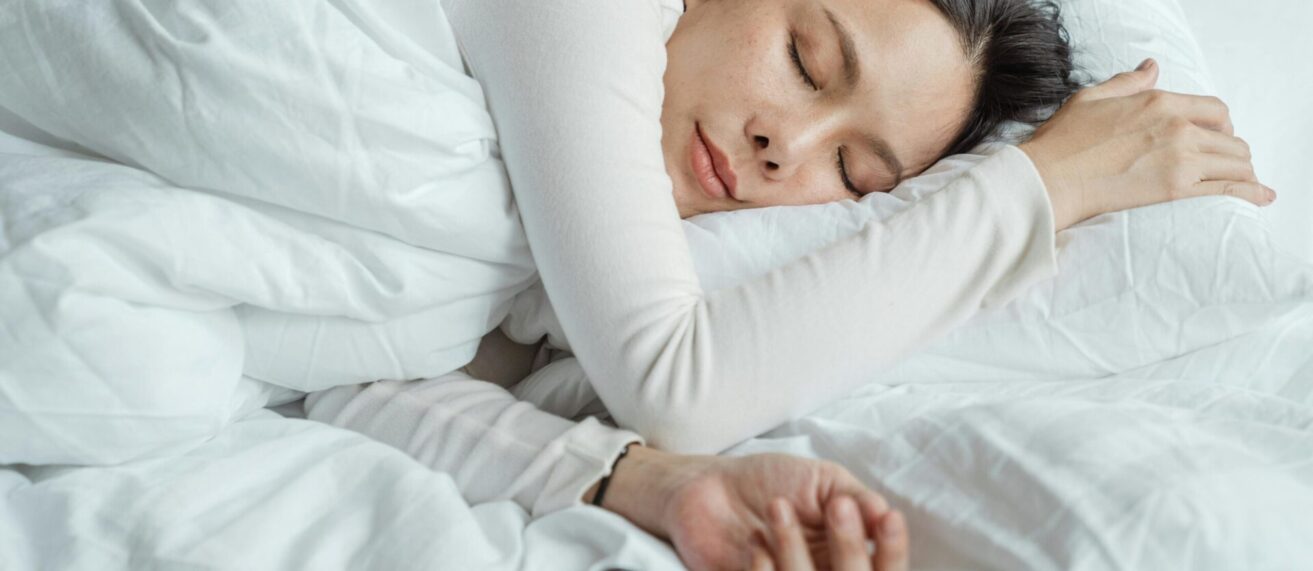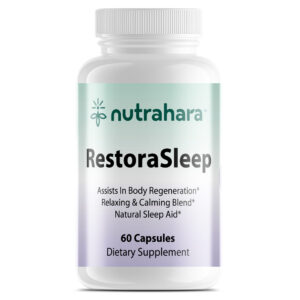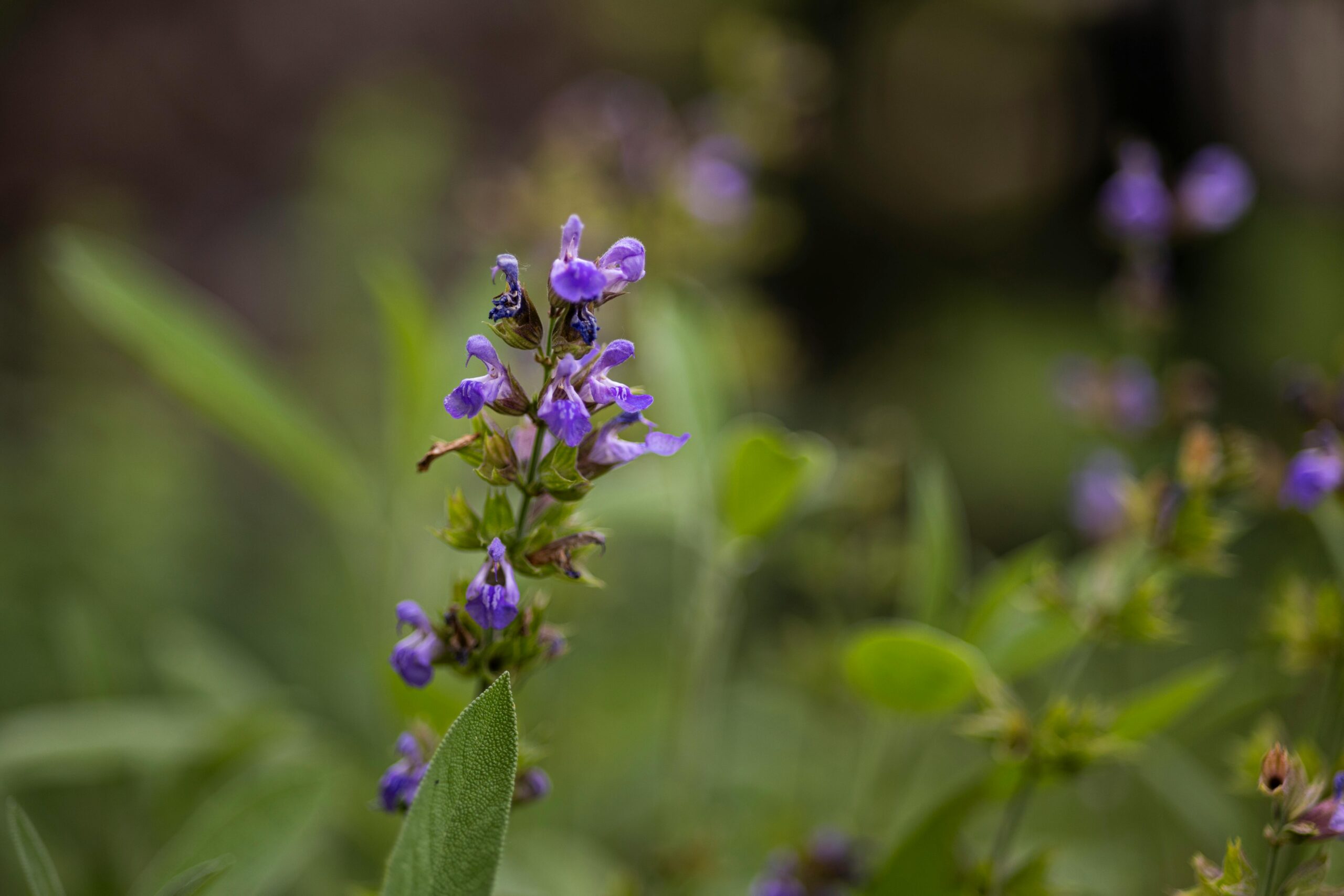
Nutrahara Blog
Nutrahara Blog
Best Sleep Herbs and Sleep Apnea Supplements to Tackle Sleepless Nights
Introduction
Sleep is an essential component of a healthy lifestyle, allowing our bodies and minds to rejuvenate and recharge. However, in today’s fast-paced world, many individuals struggle with achieving restful sleep due to stress, anxiety, and other factors. Thankfully, nature provides a variety of gentle and effective remedies known as natural sleep aids. In this article, we will explore the power of these natural alternatives such as the best sleep herbs, sleep apnea supplements, and sleep aids during pregnancy to promote a good night’s sleep, restore harmony, and enhance overall well-being.
Causes of Insomnia
It is important to explore the common causes of insomnia that will require treatment. Some of them are:
Stress and Anxiety
One of the leading causes of insomnia is excessive stress or anxiety. Racing thoughts, worry, and an overactive mind can make it challenging to relax and fall asleep. Addressing the underlying stressors through stress management techniques, therapy, or relaxation exercises can help alleviate insomnia.
Poor Sleep Habits
Irregular sleep patterns, irregular bedtime routines, and an inconsistent sleep environment can disrupt the body’s natural sleep-wake cycle. Establishing a consistent sleep schedule, creating a calming bedtime routine, and optimizing the sleep environment by reducing noise and light can aid in overcoming insomnia.
Medical Conditions
Certain medical conditions can contribute to insomnia. Chronic pain, respiratory problems, hormonal imbalances, gastrointestinal issues, and neurological disorders can disrupt sleep. Treating the underlying medical condition in consultation with a healthcare professional is crucial to address the associated insomnia.
Medications
Some medications can interfere with sleep. Stimulants like certain antidepressants, decongestants, and medications containing caffeine can disrupt sleep patterns. If you suspect that a medication is causing your insomnia, consult your doctor to explore alternative options or adjust dosages.
Substance Use
Consumption of substances such as nicotine, caffeine, and alcohol close to bedtime can interfere with sleep. Nicotine and caffeine act as stimulants, while alcohol may initially induce drowsiness but can disrupt sleep later in the night. Limiting or avoiding these substances, particularly close to bedtime, can help improve sleep quality.
Psychological Disorders
Insomnia is often associated with mental health conditions like depression, bipolar disorder, and post-traumatic stress disorder (PTSD). Addressing and managing the underlying psychological disorder through therapy, medication, or a combination of treatments can alleviate insomnia symptoms.
Environmental Factors
External factors such as excessive noise, uncomfortable temperature, an uncomfortable mattress or pillow, and light pollution can contribute to insomnia. Creating a sleep-friendly environment by reducing noise, controlling temperature, investing in a comfortable mattress and pillow, and using blackout curtains or sleep masks can help improve sleep quality.
Shift Work and Jet Lag
Disruptions to the body’s natural circadian rhythm due to shift work or travel across time zones can cause insomnia. Establishing a consistent sleep schedule, using bright light exposure or melatonin supplements to regulate sleep-wake cycles, and implementing relaxation techniques can assist in overcoming insomnia associated with shift work and jet lag (1).
Best Sleep Herbs
The natural and best sleep herbs, which are sleep aid non-prescription recognized in the treatment of insomnia are:
Valerian Root (Valeriana officinalis)
Valerian root has been used for centuries as a natural sleep aid. It contains compounds that interact with certain neurotransmitters in the brain, promoting relaxation and reducing anxiety. Valerian root is often consumed in the form of teas, capsules, or tinctures. Research suggests that it can improve sleep quality and reduce the time taken to fall asleep.
Chamomile (Matricaria chamomilla)
Chamomile is a popular and one of the best sleep herbs known for its soothing properties. Its mild sedative effects make it an excellent choice for those seeking a natural sleep aid. Chamomile tea is widely consumed as a bedtime ritual, helping to calm the mind and relax the body. It contains compounds that bind to certain receptors in the brain, promoting relaxation and reducing anxiety.
Lavender (Lavandula angustifolia)
Lavender, with its pleasant aroma, is not only a delight to the senses but also an effective sleep aid. The scent of lavender has been shown to reduce stress, lower blood pressure, and induce relaxation. Inhaling lavender essential oil or using lavender-scented products, such as pillows or sprays, can help create a calming sleep environment and promote better sleep quality.
Passionflower (Passiflora incarnata)
Passionflower is a herb known for its calming and sedative effects. It contains compounds that interact with certain receptors in the brain, promoting relaxation and reducing anxiety. Passionflower tea or tinctures can be consumed before bedtime to ease the mind and prepare the body for sleep. Research suggests that passionflower can improve sleep quality and reduce insomnia symptoms.
Lemon Balm (Melissa officinalis)
Lemon balm is a citrus-scented herb that has been used for centuries to promote relaxation and improve sleep. It contains compounds that have a calming effect on the nervous system, reducing anxiety and promoting better sleep. Lemon balm tea or supplements can be taken before bedtime to help soothe the mind and enhance sleep quality.
California Poppy (Eschscholzia California)
California poppy is a gentle sedative herb that can help promote relaxation and improve sleep quality. It contains alkaloids that interact with certain receptors in the brain, producing a calming effect. California poppy tinctures or capsules can be used to alleviate insomnia symptoms and promote restful sleep.
Ashwagandha (Withania somnifera)
Ashwagandha is an adaptogenic herb widely used in traditional Ayurvedic medicine to promote relaxation and balance. It helps reduce stress and anxiety, which are common culprits of insomnia. Ashwagandha supplements or powdered root can be consumed to support the body’s stress response and promote better sleep quality.
Hops (Humulus lupulus)
Hops, commonly known for their use in beer brewing, also possess sedative properties that aid in promoting sleep. They contain compounds that have a calming effect on the central nervous system. Hops can be consumed in the form of teas or herbal tinctures to support relaxation and facilitate restful sleep.
Skullcap (Scutellaria lateriflora)
Skullcap is a herb known for its tranquilizing properties. It helps calm an overactive mind and reduces anxiety, making it beneficial for individuals struggling with insomnia. Skullcap can be consumed as tea or taken in the form of capsules or tinctures to support relaxation and improve sleep quality.
Lemon Verbena (Aloysia citrodora)
Lemon verbena is a sleep aid non-prescription, and fragrant herb that possesses soothing properties, making it an excellent choice for promoting sleep. It contains compounds that help relax the muscles and calm the mind. Lemon verbena tea or essential oil can be used to create a calming atmosphere before bedtime and enhance the sleep experience.
Catnip (Nepeta cataria)
Catnip, often associated with attracting and calming cats, can also have a relaxing effect on humans. It contains compounds that induce a mild sedative effect, helping to alleviate anxiety and promote better sleep. Catnip tea can be consumed to support relaxation and aid in achieving restful sleep.
Magnolia Bark (Magnolia officinalis)
Magnolia bark has been used in traditional Chinese medicine for its calming and sleep-promoting properties. It contains compounds that interact with neurotransmitters in the brain, helping to reduce anxiety and induce relaxation. Magnolia bark supplements or extracts can be used to support a peaceful sleep environment (2,3).
Sleep Aid Liquid
Sleep aid liquids have gained popularity due to their convenience and ease of use. Unlike traditional pills or capsules, sleep aid liquids can be quickly absorbed by the body, leading to faster effects. They often come in pre-measured doses, making them convenient for individuals who prefer a precise and hassle-free approach to their sleep routine. Sleep aid liquids are also portable, allowing for on-the-go use, making them ideal for frequent travelers or those with busy lifestyles.
A good example is the Diphenhydramine liquid sleep aid. Diphenhydramine is an antihistamine with sedative properties commonly used as an over-the-counter sleep aid. While it was primarily developed to treat allergies, its sedating effects have made it a popular choice for individuals seeking assistance with sleep. Diphenhydramine sleep aid liquid typically contains a measured dose of diphenhydramine hydrochloride, providing an easy-to-administer and rapidly-acting sleep aid (4).
The Benefits of Diphenhydramine Sleep Aid Liquid
Inducing Sleep
Diphenhydramine is known for its sedative properties, making it effective in promoting sleep. It acts by blocking histamine receptors in the brain, which helps to reduce alertness and facilitate drowsiness, leading to a smoother transition into sleep.
Quick Onset of Action
One of the advantages of diphenhydramine sleep aid liquid is its relatively fast onset of action. When taken as directed, it typically takes effect within 30 minutes to an hour, allowing users to initiate sleep more promptly.
Temporary Relief for Transient Insomnia
Diphenhydramine sleep aid liquid is suitable for short-term use to address transient sleep difficulties, such as jet lag or temporary disruptions to sleep patterns. It can provide temporary relief and help restore a healthy sleep routine (5).
Sleep Aids During Pregnancy
Pregnancy is a transformative journey that brings joy and anticipation, but it can also introduce challenges, including difficulties with sleep. Many expectant mothers experience changes in sleep patterns and discomfort that can impact the quality of their rest. When sleep troubles arise, it is essential to explore safe and effective sleep aids during pregnancy that prioritizes the well-being of both the mother and the developing baby (6).
Safe Options For Sleep Aids During Pregnancy
While it is crucial to consult with a healthcare professional for personalized advice, here are some generally considered safe sleep aid options during pregnancy:
Supportive Pillows
Many pregnant women find relief from discomfort and achieve better sleep quality by using supportive pillows to alleviate pressure on the back, hips, and abdomen.
Relaxation Techniques
Incorporating relaxation techniques such as deep breathing exercises, progressive muscle relaxation, or guided imagery can help calm the mind and promote better sleep.
Warm Milk or Herbal Tea
A soothing cup of warm milk or herbal tea, such as chamomile or lemon balm, can provide relaxation and contribute to a more peaceful sleep environment serving as one of the perfect sleep aids during pregnancy.
Aromatherapy
Using essential oils like lavender or mandarin in a diffuser or as part of a bedtime routine can create a calming atmosphere and potentially enhance sleep quality (7).
Sleep Remedy Homeopathy
Homeopathy is based on the principle of “like cures like,” which suggests that a substance that causes symptoms in a healthy person can stimulate the body’s natural healing response in a person experiencing similar symptoms. Sleep remedy homeopathy is derived from natural sources such as plants, minerals, and animals. These remedies are prepared through a process of serial dilution and succussion, which aims to enhance their therapeutic properties while minimizing potential toxicity.
Common Homeopathic Sleep Remedies
Coffea Cruda
Coffea Cruda, derived from coffee beans, is often used in homeopathy to address sleeplessness caused by an overactive mind or excessive mental stimulation. It can help calm racing thoughts, promote mental relaxation, and facilitate better sleep.
Nux Vomica
Nux Vomica, a common sleep remedy homeopathy obtained from the seeds of the Strychnos nux-vomica tree, is commonly recommended for individuals who experience difficulty falling asleep due to stress, an irregular lifestyle, or excessive use of stimulants. It can help regulate sleep patterns and restore a sense of balance.
Chamomilla
Chamomilla, derived from the chamomile plant, is known for its calming and soothing properties. It is often utilized in sleep remedy homeopathy to alleviate sleeplessness and irritability, particularly in infants and children.
Passiflora Incarnata
Passiflora Incarnata, made from the passionflower plant, is a homeopathic remedy that can be used to induce relaxation, relieve nervous tension, and promote restful sleep.
Ignatia Amara
Ignatia Amara, derived from the seeds of the St. Ignatius bean, is commonly employed in homeopathy to address sleep disturbances caused by emotional stress, grief, or loss. It can help alleviate restlessness and aid in achieving more peaceful sleep (8).
Sleep Apnea Supplements
Sleep apnea is a common sleep disorder characterized by pauses in breathing or shallow breathing during sleep, often leading to disrupted sleep patterns and inadequate rest. While medical intervention is crucial for managing sleep apnea, some individuals seek additional support through sleep apnea supplements, such as RestoraSleep from Nutrahara.
Sleep apnea supplements are dietary supplements designed to complement traditional medical treatments by addressing specific aspects of sleep apnea. These supplements often contain natural ingredients that aim to improve airflow, enhance respiratory function, and promote relaxation during sleep. It is important to note that sleep apnea supplements should not replace or be used as a substitute for prescribed therapies or medical advice.
Common Ingredients in Sleep Apnea Supplements
Magnesium
Magnesium is an essential mineral that plays a role in muscle relaxation and supports healthy sleep patterns. It may help relax the muscles of the airway, potentially reducing the severity of sleep apnea symptoms.
Turmeric
Turmeric, a natural anti-inflammatory spice, contains a compound called curcumin that has been studied for its potential to reduce inflammation in the airways and promote respiratory health.
Vitamin D
Vitamin D deficiency has been associated with an increased risk of sleep disorders, including sleep apnea. Using vitamin D as a sleep apnea supplement may help support overall respiratory function and sleep quality.
Coenzyme Q10
Coenzyme Q10 is an antioxidant that has been studied for its potential benefits in improving respiratory function and reducing oxidative stress, which can be elevated in individuals with sleep apnea (9).
Conclusion
Discover effective natural solutions for a good night’s rest in our comprehensive guide. Learn about the best sleep herbs for improving sleep quality, explore sleep apnea supplements for better breathing, and find sleep aids liquid for easy consumption. We also cover safe sleep aids during pregnancy, delve into sleep remedy homeopathic options, and discuss sleep aids non prescription for convenient relief. Enhance your sleep naturally and safely with our expert insights.
References
- https://my.clevelandclinic.org/health/diseases/12119-insomnia
- https://eachnight.com/sleep/12-natural-herbs-for-sleep/
- https://casper.com/blog/sleep-herbs/
- https://www.medbroadcast.com/drug/getdrug/nighttime-sleep-aid-liquid
- https://www.drugs.com/cdi/diphenhydramine-sleep-aid-liquid.html
- https://www.singlecare.com/blog/sleep-aid-while-pregnant/
- https://www.sleepfoundation.org/pregnancy/pregnancy-sleep-aid#:~:text=Taking%20melatonin%20supplements%20helps%20some,pregnant%20people%20take%20melatonin%20supplements
- https://www.homeopathyschool.com/news/2019/10/8-homeopathic-remedies-to-help-with-insomnia/
- https://www.sleepquest.com/nutritional-supplements-for-sleep-and-sleep-apnea/
- https://www.wellness.com/dir/2758458/medical-supplies/sleep-remedies-llc/oklahoma-city/ok#referrer
Written by the Nutrahara Team
This article was prepared by the expert team at Nutrahara, which includes experienced nutrition scientists and naturopaths dedicated to advancing women’s health through natural wellness solutions. We combine scientific research with holistic practices to help you live your healthiest life. Connect with us on LinkedIn to stay updated on the latest in women’s health and wellness.







